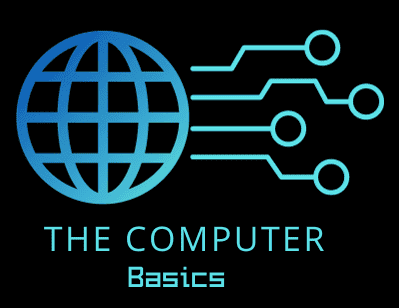Picking the right Internet Service Provider can feel overwhelming. There are many options and factors to weigh. But don’t worry – we’ve got you covered.
Choosing an ISP comes down to understanding your needs and comparing them to what providers offer.
You’ll want to look at internet speeds, connection types, and prices. But don’t forget about reliability and customer support too. A cheap plan isn’t a good deal if it’s always cutting out or you can’t get help when you need it.
Take some time to think about how you use the internet. Do you work from home? Stream lots of videos? Game online? Knowing your habits will help you pick the right speed and plan. And remember, the cheapest option isn’t always the best value in the long run.
Key Takeaways
- Assess your internet usage to determine the right speed and plan for your needs
- Compare ISPs based on reliability, customer support, and additional features, not just price
- Consider future needs and scalability when selecting an internet provider and plan
Determining Your Internet Needs
Before choosing an ISP, you need to figure out what kind of internet service will work best for you. Think about how you use the internet and what speeds you’ll need.
Assessing Required Speeds
Internet speed is key to a good online experience. Download speeds are important for watching videos and downloading files. Upload speeds matter for video calls and sending large files.
For basic web browsing and email, you might only need 5-10 Mbps. But for streaming HD video, aim for at least 25 Mbps. If you work from home or game online, consider 100 Mbps or more.
Here’s a quick guide:
- Basic use: 5-10 Mbps
- HD streaming: 25 Mbps
- 4K streaming: 35-40 Mbps
- Online gaming: 50-100 Mbps
- Large households: 100+ Mbps
Remember, more devices using the internet at once means you’ll need higher speeds.
Understanding Data Usage
Many ISPs offer unlimited data plans, but some have data caps. It’s crucial to know how much data you use each month.
Streaming video uses a lot of data. One hour of HD video can use up to 3 GB. If you stream often, you might need 500 GB or more per month.
Other activities use less data:
- Web browsing: 60 MB per hour
- Online gaming: 100 MB per hour
- Video calls: 500 MB per hour
Keep track of your data usage for a month to get a clear picture of your needs.
Evaluating Internet Activities
Your online activities play a big role in choosing the right internet plan. Think about what you do online most often.
Do you work from home? You’ll need reliable speeds for video conferencing and file sharing. Gamers need fast speeds and low latency for a smooth experience.
If you mainly use social media and browse the web, you can get by with lower speeds. But if you stream 4K videos or have a smart home with many connected devices, you’ll want faster speeds.
Make a list of your main online activities. This will help you pick a plan that fits your lifestyle without paying for more than you need.
Types of Internet Connections
Internet connections come in several forms, each with its own pros and cons. The main types are DSL, cable, fiber, satellite, and fixed wireless. Your choice will affect your internet speed and reliability.
Comparing DSL, Cable, and Fiber
DSL uses your phone line to deliver internet. It’s widely available but slower than other options. Cable internet runs through coaxial cables and offers faster speeds. It’s a popular choice in many areas.
Fiber internet is the fastest type. It uses light signals through fiber-optic cables. Fiber can provide speeds up to 1 Gbps or more. But it’s not available everywhere yet.
Here’s a quick comparison:
| Type | Speed | Availability | Reliability |
|---|---|---|---|
| DSL | Low-Medium | High | Good |
| Cable | Medium-High | High | Good |
| Fiber | Very High | Limited | Excellent |
Exploring Satellite and Fixed Wireless
Satellite internet beams signals from space. It’s great for rural areas where other options aren’t available. But it can be slower and have higher latency than wired connections.
Fixed wireless uses radio waves from a ground antenna. It’s another good option for rural areas. It’s usually faster than satellite but can be affected by weather and obstacles.
Both these options are improving. New satellite networks promise faster speeds. And 5G fixed wireless could offer a strong alternative to wired broadband in some areas.
Remember, your location plays a big role in what’s available to you. Check which providers serve your area before making a decision.
Analyzing ISP Reliability and Service Quality

Picking an ISP isn’t just about speed and price. You’ll want to look at how reliable their service is and how they treat their customers. Let’s dig into the key factors that can make or break your internet experience.
Uptime and Outage Responsiveness
A reliable ISP keeps you connected consistently. Look for providers with high uptime percentages, ideally 99.9% or better. This means fewer frustrating outages interrupting your work or entertainment.
When outages do happen, quick fixes matter. Check if the ISP:
- Has 24/7 technical support
- Offers status updates during outages
- Provides compensation for extended downtime
Some ISPs use advanced network monitoring to spot and fix issues before you even notice. This proactive approach can save you headaches down the road.
Customer Service and Support
Good customer support can make a huge difference when you’re having internet troubles. Look for ISPs that offer:
- Multiple contact options (phone, chat, email)
- Extended support hours
- Short wait times
- Knowledgeable staff
You can often find info on customer service quality in online reviews or industry reports. Pay attention to how quickly issues get resolved and how friendly the support team is.
Some ISPs now offer self-service tools like troubleshooting apps or online guides. These can be super handy for fixing simple problems on your own.
Service Reviews and Feedback
Don’t just take the ISP’s word for it – see what other customers are saying. Check out:
- Online review sites
- Social media feedback
- Consumer Reports ratings
Look for patterns in the reviews. Are there consistent complaints about billing issues or slow speeds? Or do you see lots of praise for reliable service?
Be sure to read recent reviews, as ISP quality can change over time. Also, check if the ISP responds to customer feedback online. This can show how much they care about improving their service.
Remember, no ISP is perfect, but you want one that listens to its customers and works to fix problems quickly.
Cost Considerations for ISPs

When choosing an ISP, it’s crucial to look beyond the advertised prices. You’ll need to consider several factors that impact the total cost of your internet service.
Comparing Plan Pricing
Internet plans come in various speeds and prices. Basic browsing might only need 5-10 Mbps, while streaming and gaming could require 100 Mbps or more. Make a list of your internet activities to determine the speed you need.
Compare prices for similar speeds across different ISPs. Don’t forget to check for:
- Promotional rates
- Regular rates after promotions end
- Data caps and overage fees
Some ISPs offer bundle deals with TV or phone service. These can save you money if you need multiple services.
Uncovering Hidden Fees and Price Hikes
Be on the lookout for extra costs that can inflate your bill. Common hidden fees include:
- Equipment rental (modem/router)
- Installation charges
- Activation fees
- Early termination fees
Price hikes after the first year are common, so always ask about long-term pricing. Some ISPs offer price guarantees, which can protect you from unexpected increases.
Evaluating Contract Terms and Conditions
Carefully review the contract before signing up. Pay attention to:
- Contract length
- Cancellation policies
- Equipment return requirements
No-contract options give you flexibility but may cost more monthly. Long-term contracts often have lower rates but come with early termination fees.
Look for trial periods that let you test the service. This can help you avoid getting stuck with an ISP that doesn’t meet your needs.
Remember, the cheapest option isn’t always the best value. Consider reliability and customer service alongside cost when making your decision.
Additional ISP Features and Considerations

When picking an ISP, there’s more to think about than just speed and price. Some extra features can make a big difference in your internet experience.
Security and Privacy Options
Your online safety matters. Many ISPs now offer security packages to protect you from cyber threats. Look for features like antivirus software, firewalls, and parental controls. Some providers even include these at no extra cost.
Privacy protection is another key factor. Check if the ISP has a clear privacy policy. Do they sell your browsing data? Can you opt out? VPN services bundled with your plan can add an extra layer of privacy.
Don’t forget about spam filtering for your email. A good ISP will help keep your inbox clean.
Flexibility of Services
You might need more than just internet. Many ISPs offer bundles with TV, phone, or even mobile services. These packages can save you money and simplify your bills.
Look for providers that let you customize your plan. Maybe you want to add hosting services for your website. Or you might need a static IP address for work.
Data caps are a big deal too. Some ISPs limit how much data you can use each month. If you stream a lot or work from home, you’ll want a plan with high or no data caps.
Local ISP Advantages
Don’t overlook smaller, local ISPs. They often provide perks that big companies can’t match. You might get more personal customer service. Some even offer same-day repairs.
Local ISPs can be more flexible with their plans. They might create a custom package just for you. Plus, they often know your area better. This can mean faster response times for outages.
Supporting a local business can feel good too. Your money stays in the community. And you might find that local ISPs care more about their reputation in town.

